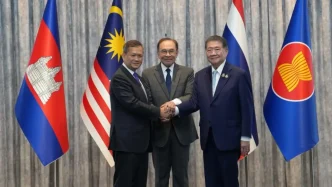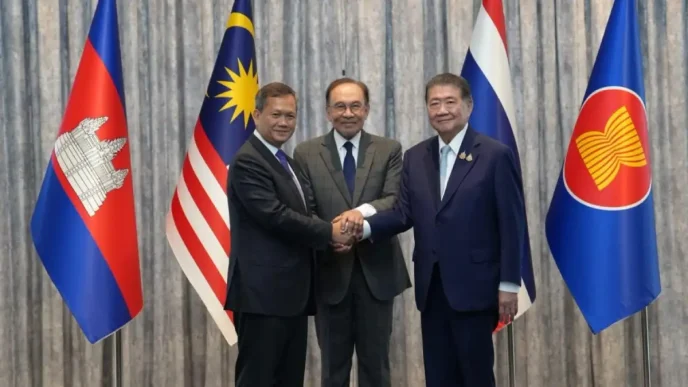In the bustling democratic landscape of the Philippines, public opinion surveys have long been a double-edged sword. As the country gears up for the midterm polls on 12 May, the role of pre-election surveys in shaping voter perceptions has come under intense scrutiny. While these polls aim to capture the public’s fleeting sentiments, they often risk becoming self-fulfilling prophecies through the so-called bandwagon effect—a phenomenon where perceived popularity influences voter choice, potentially skewing electoral outcomes. With the Commission on Elections (Comelec) introducing stricter regulations on survey publication, the debate over their impact on democracy is more pertinent than ever.
A Snapshot of Democracy or a Distorted Mirror?
Public opinion surveys, often seen as vital tools for gauging voter sentiment, are not without flaws. Issues such as sampling bias, loaded questions, and low response rates can compromise their accuracy. In the context of elections, however, the greater concern lies in their conditioning effect on voters. As defined by Section 5.1 of the Philippines’ Fair Election Act, election surveys measure opinions on candidates’ popularity, qualifications, and platforms during the campaign period. Yet, with many voters lacking access to comprehensive information about candidates’ backgrounds or track records, these surveys often devolve into mere popularity contests. Name recognition, rather than competence or policy substance, frequently dictates the results.
The bandwagon effect exacerbates this problem. When pre-election polls highlight a ‘winning’ group—such as the coveted ‘Magic 12’ list for senatorial candidates—voters may gravitate towards these perceived frontrunners, not necessarily because of their merits but due to their apparent electability. This dynamic disadvantages lesser-known candidates, who may possess genuine public service aspirations but lack the visibility to compete. As a result, surveys can perpetuate a cycle of popularity, sidelining potentially capable leaders who fall outside the so-called winning circle.
The Science Behind the Swing
Research has lent weight to concerns about the bandwagon effect. A 2020 study by Dr. Mike Farjam, published in the International Journal of Public Opinion Research, found that exposure to pre-election poll results increased support for majority options by as much as 7%. While this percentage may seem modest, it can prove decisive in tightly contested races. The study also noted that the bandwagon effect is particularly pronounced among undecided voters and on less polarising issues, where personal conviction is often weaker. In such scenarios, polls can subtly nudge voters towards perceived winners, amplifying their influence beyond mere data collection.
The problem is compounded by the proliferation of nonscientific surveys, often conducted by unverified polling firms or even social media influencers. Unlike rigorous surveys grounded in statistical methodology, these polls—frequently based on convenience samples—can easily distort public perception. On platforms like X, where viral content spreads rapidly, skewed or fabricated survey results can manipulate voter sentiment, further muddying the democratic process. The National Movement for Free Elections has warned that such results are often weaponised on social media to spread disinformation, creating a false narrative of candidate viability.
Comelec Steps In: Regulation as a Safeguard
Recognising these risks, the Commission on Elections has taken bold steps to regulate the publication of election surveys ahead of the midterm polls. Under new policies, Comelec has classified several actions as election offences, including the failure to preregister survey conductors, disseminating fake surveys, and neglecting to disclose sponsors or detailed methodologies before results are aired or published online. Additionally, survey conductors must submit comprehensive reports to ensure transparency. If enforced effectively, these measures could serve as a critical check on the unchecked influence of polls, curbing the spread of disinformation and holding polling entities accountable.
Comelec’s intervention is a response to a growing consensus that surveys, if left unregulated, can undermine the integrity of elections. By mandating transparency, the commission aims to ensure that voters are not swayed by unverified or manipulative data. This move has been lauded by election watchdogs, who see it as a necessary bulwark against the distortion of democratic choice. However, the effectiveness of these regulations will depend on rigorous implementation—a challenge in a media landscape where social platforms often outpace traditional oversight mechanisms.
Beyond Surveys: The Call for Voter Education
While regulation is a step forward, critics argue that it addresses only part of the problem. The deeper issue lies in the information vacuum that surveys often exploit. Many Filipino voters, particularly in rural areas or underserved communities, lack access to reliable information about candidates’ platforms or track records. In such a context, surveys become a shortcut—a flawed heuristic for decision-making. To counter this, there is a pressing need for robust voter education initiatives, spearheaded by Comelec in collaboration with civil society groups, academia, and media organisations.
One proposed solution is the mandatory participation of candidates in live debates. Unlike surveys, which reduce candidates to numbers or rankings, debates offer a platform for direct engagement. They allow voters to assess candidates’ positions on critical issues, scrutinise their policies, and witness their ability to articulate solutions. Moreover, debates can serve as an antidote to the echo chambers and confirmation biases perpetuated by social media, where misinformation often thrives. By mandating attendance at these events, Comelec could ensure that voters receive a steady stream of verifiable information, reducing reliance on potentially skewed survey results.
The Broader Implications for Democracy
The bandwagon effect and the influence of election surveys raise broader questions about the health of democratic processes, not just in the Philippines but across the globe. As the Brookings Institute noted in a 2003 analysis, public opinion is an “elusive commodity,” prone to inconsistency and change. Voters often rely on information shortcuts—whether surveys, media narratives, or social media trends—when making political decisions. This creates fertile ground for political actors to shape narratives in ways that bolster their own support, often at the expense of informed debate.
In the Philippines, where electoral politics is deeply tied to personality and name recall, the stakes are particularly high. The bandwagon effect risks entrenching a system where popularity, rather than policy or competence, determines outcomes. This dynamic can stifle diversity in representation, as lesser-known candidates—particularly those from marginalised communities or with limited resources—struggle to break through the noise. If left unchecked, the influence of surveys could erode the democratic principle of equal opportunity, favouring those with pre-existing visibility or financial backing.
A Path Forward: Balancing Data and Discourse
Addressing the challenges posed by election surveys requires a multi-pronged approach. Regulation, as initiated by Comelec, is a critical first step, ensuring that only credible and transparent polls shape public discourse. However, regulation alone cannot fill the information gap that many voters face. Enhanced voter education, including accessible resources on candidates’ platforms and mandatory debates, must complement these efforts. Media organisations and civil society groups also have a role to play in countering disinformation, particularly on social platforms where fake surveys can spread unchecked.
Ultimately, the goal is to empower voters to make informed choices based on substance rather than perception. While surveys will always have a place in democratic systems—offering a glimpse into public sentiment—they must not become the arbiter of electoral outcomes. The bandwagon effect, if left unaddressed, risks turning elections into popularity contests, sidelining the very principles of representation and accountability that democracy seeks to uphold.
As the Philippines approaches the midterm polls, the spotlight is on Comelec to lead the charge in reforming how surveys influence elections. If successful, these efforts could set a precedent for other democracies grappling with similar challenges, proving that data, when handled responsibly, can inform rather than manipulate. For now, the message to Filipino voters is clear: look beyond the numbers, seek out the debates, and demand the information needed to shape a future that reflects their true aspirations.














